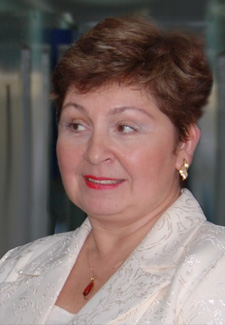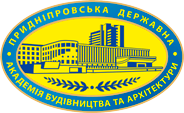Scientific profile

Сandidate of philosophical sciences (PhD), Associate Professor, Master's degree in «Higher Education Pedagogy»
Oksana
PLAKSINA
Contacts and CV
Research
Current research
“The role of the subjective factor in the social development of Ukraine at the current stage” - the general department theme.
More
«Sustainable development of modern society: socio-philosophical analysis» - the scientific topic
More
Past research
Publications
1. The notion of development in the Aristotle’s works and modernity // Scientific and theoretical almanac «GRANI». 2018. Vol. 21. № 1. Р. 19-29. URL: https://grani.org.ua/index.php/journal/article/view/1089
2. Sustainable Development of Modern Society through the Prism of the Phenomenon of Justice // Proceedings of the XXIII World Congress of Philosophy. Volume 48, 2018. Philosophy of Development. Pages 67-72. URL: https://www.pdcnet.org/wcp23/content/wcp23_2018_0048_0067_0072
3. Hrebinnyk T.A., Bilopolyi V.V., Plaksina O. I. Philosophy in architecture: a modern view // Bulletin of PSASEA. 2018. № 6. P. 83-88.DOI: 10.30838/J.BPSACEA.2312.261218.83.452 URL: http://visnyk.pgasa.dp.ua/article/view/174516
4. The sustainability of society in the Aristotle’s socio-philosophical doctrine // Scientific and theoretical almanac «GRANI». 2019. V. 22. № 3. Р. 62-76. doi: 10.15421/171933 URL: https://grani.org.ua/index.php/journal/article/view/1339
5. Modern development of the concepts of progress and regress in history as a philosophical problem of science // Education and science in the changing world: problems and prospects of development. Proceedings of the II International scientific conference. March 27-28, 2020, Dnipro. Part II. / Nauk. ed. by O. Y. Vysotsky. Dnipro: SPD “Okhotnik”, 2020. Р. 221-223. URL: https://www.twirpx.com/file/3078033/ (second part)
6. The great zeroing of the sustainability of the global social order through the destruction of socio-cultural identification // Scientific and theoretical almanac «GRANI». 2021. V. 24. № 4. Р. 5-21. URL: https://grani.org.ua/index.php/journal/article/view/1625/1612
7. Correlation of education, educatedness and sustainable development of modern society // Education and science in the changing world: problems and prospects of development. Proceedings of the III International scientific conference. March 26-27, 2021, Dnipro. Part I. / Nauk. ed.by O. Y. Vysotsky. Dnipro: SPD “Okhotnik”, 2021.P. 248-251. URL: https://www.twirpx.com/file/3420127/ (first part).
8. Pedagogical research is the effective response of higher education pedagogy to the challenges of time // Philosophical-worldview and cultural contexts of continuing education: materials of the III International scientific and practical conference on April 29-30, 2021, Dnipro, KZVO “DANO” DOR”. / Nauk. ed. by O. E. Vysotskaya. Dnipro: SPD “Okhotnik”, 2021. P. 83-84.
9. A didactic interaction in higher education and modern approaches to it: content and manifestations // Continuing education for sustainable development: philosophical-theoretical contexts and pedagogical practice: materials of the IV International scientific and practical conference 03-04 December 2021, Dnipro, KZVO “DANO” DOR”. / Nauk. ed. by O. E. Vysotskaya. Dnipro: SPD Okhotnik, 2021, P. 115-118.
10. Modern higher educational institution: types of education and a complex of approaches to didactic interaction in it // The Second Special Humanitarian Issue of Ukrainian Scientists. European Scientific e-Journal. 2022. № 3 (18). Р. 86-96. Ostrava: Tuculart Edition. URL: http://tuculart.eu/ftpgetfile.php?id=316
Courses
1. Philosophy of science
Philosophy of science is a discipline that qualifies science as a cognitive activity and social institution, as well as basic concepts that characterize scientific knowledge, its structure and principles of organization. It reveals the regularities and trends of the movement of science as a special activity for the production of scientific knowledge. It shows how the ways of forming new scientific knowledge have historically changed. Modern models of science development and stages of this development are considered. Special attention is paid to the phenomenon of technology and transformations of science and technique at the end of XX – at the beginning of XXI centuries.
2. Philosophy
Philosophy is a course, which studies the most general essential characteristics and fundamental principles of reality, cognition and human existence, the relationship between man and the world, human attitude to nature, society and spiritual life. Philosophy forms and reflects a person's worldview orientations, awareness of the place and role of the human in the world, substantiates priority values in the life of society, determines acceptable ways and means to achieve these values.
3. Religious studies
Religious studies is a course that gives students the opportunity to understand how various religions formed, the phenomenon of religion, to understand the complexity of social relations between the state and religion and to apply knowledge about religious organizations of Ukraine and the world in practical activities.
A verified tolerant attitude towards religious and church issues of both theoretical and practical character is a necessary condition for the humanitarian education of any specialist; he must know the spiritual heritage of humanity and universal values, which are in the doctrines of world religions.
